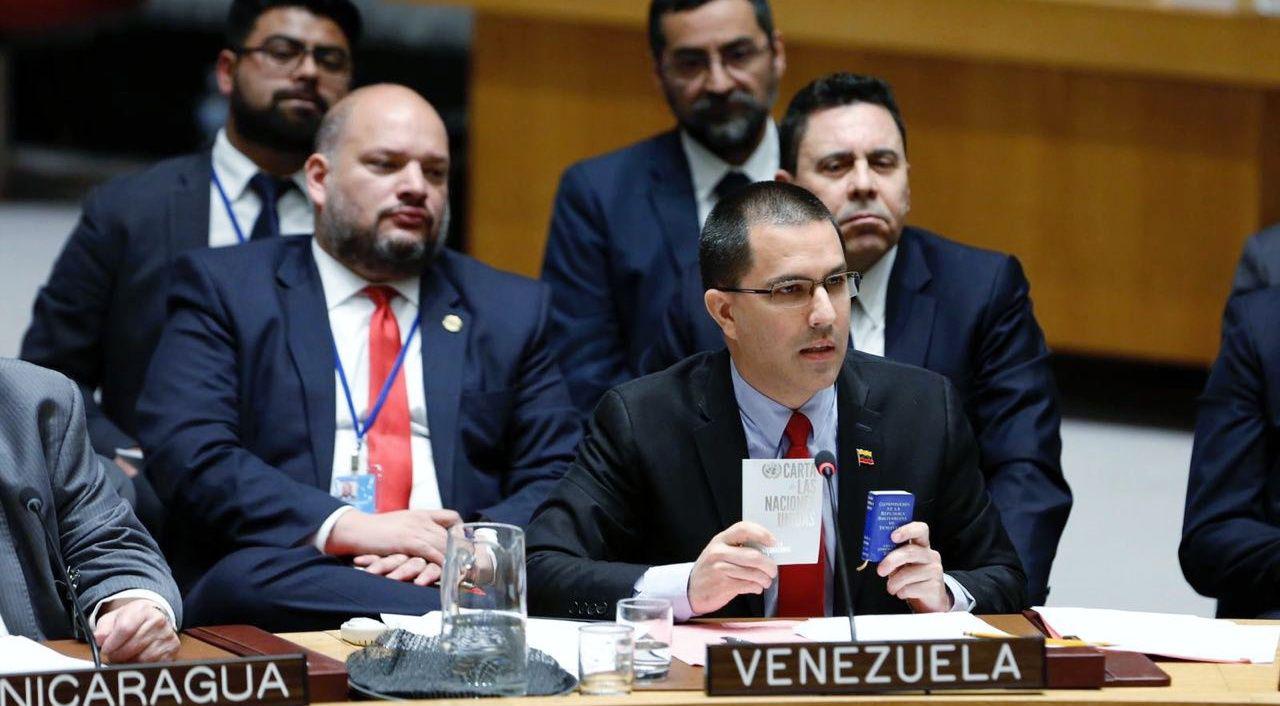On February 26, when the UN security council held a special hearing on Venezuela, the country’s president, Nicolas Maduro, condemned the US-led attempt to overthrow its legitimate government. Speaking at a solidarity meeting with Venezuela that is part of the processes of the International Peoples’ Assembly, Maduro said, “On Saturday, February 23, Venezuela suffered an aggression by the Colombian government on the bridges on the border in the state of Táchira. A aggression violating international law, violating two accords of binational integration, violating the spirit of cohabitation and brotherhood of the Colombian people with the Venezuelan people.”
The UN special hearing saw the US and its allies of the Lima Group ramp up their attacks on the government of Nicolas Maduro. There has been a concerted attempt to use the incidents on the borders of Venezuela with Brazil and Colombia on February 23 as a reason for further action on Venezuela. On February 23, the opposition led by self-proclaimed interim president Juan Guaido tried to push in ‘humanitarian aid’ into Venezuela through its borders, leading to clashes with the country’s security forces. The burning of an aid truck on the Colombian side of the border has been attributed in many media accounts to Venezuelan forces although the incidents took place far from their position. Clashes continued on the Colombia-Venezuela border throughout the weekend and on February 25, Monday. A number of incidents were reported of opposition sympathizers flinging Molotov cocktails at the Venezuelan security forces, who responded with tear gas.
The United States is reportedly planning a resolution in the UN Security Council, pressurizing Venezuela into accepting ‘humanitarian aid.’ At both the UN meeting and through media outlets, the US administration and its allies have been pushing the narrative of Maduro denying his people aid. At the same time, they have been silent on Venezuela’s demand that the US withdraw sanctions that are causing great economic damage to the people of the country. The UN and the Red Cross too have warned against the politicization of aid and Venezuela has pointed out that it has accepted assistance from Russia which has come through the channels of the World Health Organization.
At the UN security council meeting, US special representative Elliot Abrams made a call to the countries of the world to join the sanctions regime on Venezuela, which has caused untold hardship to the people of the country. He made allegations regarding the role of Cuban ‘officers’ in Venezuela’s government and accused Maduro of usurping the ‘party of the Chavistas.’ He also alleged that the CLAP (Local Committees for Supply and Production) program, which has brought great relief to tens of thousands of ordinary Venezuelans and helped them resist the sanctions, was a tool of corruption. Many of Abrams’ allegations were repeated by representatives of the countries of the Lima Group, although many of these countries also made clear that they were in favor of peaceful solutions. The Lima Group had met on February 25 and expressed its support to Guaido.
The representative of Bolivia harshly attacked US president Donald Trump for declaring that all options were on the table regarding Venezuela. He said, “My country and the region have suffered from the ‘all options are on the table’,” recalling the number of disastrous US interventions in Latin America and its support for dictators such as Augusto Pinochet of Chile and Anastasio Somoza of Nicaragua. The representative of Cuba made a similar point, and also countered Abrams by pointing out that most of the Cubans in Venezuela were involved in education missions. Russia, China, Nicaragua, South Africa, St. Vincent and the Grenadines and Equatorial Guinea were among the countries which expressed opposition to Washington’s politics of regime change.
Speaking the UN, Venezuela’s foreign minister, Jorge Arreaza condemned the US’ politics of death, noting the Trump administration was driven by a greed for oil and resources and the need to obtain votes in States such as Florida during the presidential elections. “Today, it is us, tomorrow, it could be Nicaragua,” he said, adding that the US-led assault marked the end of multilateralism. He reiterated that the Venezuelan government was willing to conduct discussions with anyone who was ready, and thanked Latin American and Caribbean countries who opposed the use of force against Venezuela, terming this stand a victory.
Speaking to the press in Caracas on Monday, William Castillo, vice-minister for communications in the Venezuelan foreign ministry, said the incidents on the border on February 23 marked the violent face of the coup attempt after the concert on the Colombian border on the previous day marked its benign face.





